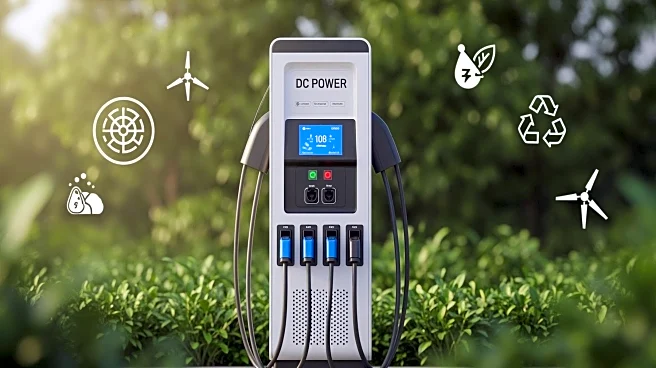What's Happening?
EcoFlow has announced a substantial price drop for its TRAIL 300 DC Power Station, now available for $146, down from its original price of $249. This portable power station is designed to provide reliable backup power during outages or for off-grid living.
It features a variety of ports to accommodate both modern and older devices, making it versatile for charging multiple items. The unit is equipped with built-in protections to manage temperature and charging, ensuring the safety of both the power station and connected devices. Its quiet operation and portability make it an attractive option for those who need a dependable power source in various situations.
Why It's Important?
The price reduction of the EcoFlow TRAIL 300 DC Power Station makes it more accessible to consumers, particularly those living in areas prone to power outages or those interested in off-grid living. This move could increase the adoption of portable power solutions, promoting energy independence and resilience. The affordability of such technology may also encourage more individuals to invest in backup power systems, potentially reducing the impact of power disruptions on daily life. As the demand for sustainable and reliable energy solutions grows, EcoFlow's competitive pricing could position it as a leader in the portable power market.
What's Next?
With the reduced price, EcoFlow may see an increase in sales and market share in the portable power station industry. Consumers are likely to respond positively to the affordability and functionality of the TRAIL 300, potentially leading to expanded product offerings or further innovations in portable power technology. EcoFlow might also explore partnerships or collaborations to enhance its market presence and reach a broader audience. As the company gains traction, it could influence competitors to adjust their pricing strategies, benefiting consumers with more options and competitive pricing.
Beyond the Headlines
The introduction of affordable portable power stations like the TRAIL 300 could have broader implications for energy consumption patterns. As more individuals adopt these technologies, there may be a shift towards decentralized energy systems, reducing reliance on traditional power grids. This trend could encourage further innovation in renewable energy solutions and contribute to a more sustainable energy landscape. Additionally, the increased use of portable power stations may drive advancements in battery technology and energy storage solutions, fostering a more resilient and adaptable energy infrastructure.














